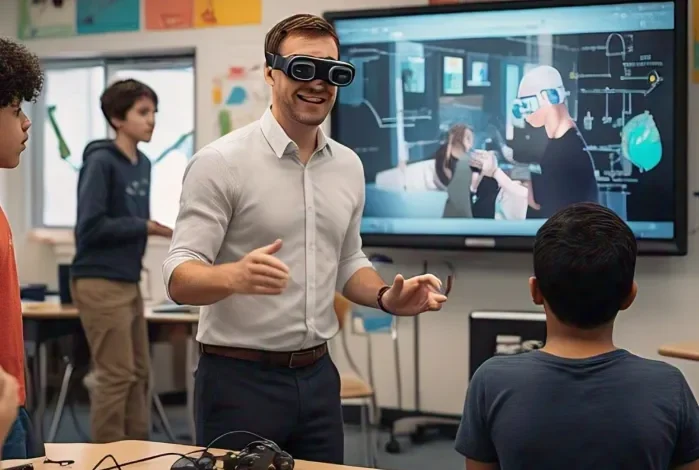AI and Inclusive Education: Breaking Barriers for Learners with Disabilities

Artificial intelligence is rapidly reshaping education, offering new opportunities to make learning more accessible and inclusive. For students with disabilities, AI-driven tools provide the support needed to overcome traditional barriers, opening the door to more equitable educational experiences. From enhancing accessibility to personalizing learning, AI is proving to be a game-changer in creating classrooms where every learner has the chance to thrive.
Making Education Accessible Through AI
Students with disabilities often face obstacles that limit their ability to participate fully in lessons. AI technologies are helping to reduce these challenges. Tools such as speech-to-text, text-to-speech, and real-time transcription services are enabling students to engage in ways that suit their individual needs.
For example, voice recognition software gives learners with limited mobility the ability to control devices without physical input, while text-to-speech applications help students with visual impairments access written materials through audio. These solutions not only increase accessibility but also empower students by encouraging independence and confidence in their studies.
Tailoring Learning to Individual Needs
One of AI’s greatest strengths lies in personalization. By analyzing patterns in student performance, AI can adapt content to match a learner’s pace, style, and preferences. This approach is particularly beneficial for students with learning difficulties, as it ensures they can move through material at a comfortable speed without being pressured to keep up with others.
AI-powered platforms can also flag areas where a student struggles and recommend targeted resources, additional practice, or alternative explanations. This type of customized support ensures that every learner, regardless of ability, has the tools to succeed.
Transforming Special Education
Special education has long been challenged by limited resources and the complexity of developing individualized education plans (IEPs). AI offers solutions by helping teachers design, implement, and monitor these plans more effectively. By analyzing data on academic progress, behavior, and social interaction, AI can provide deeper insights into a student’s needs and suggest more precise interventions.
In addition, AI can take on administrative responsibilities such as progress tracking and documentation, reducing workload for teachers. This allows educators to focus more on direct interaction and personalized support, ultimately improving outcomes for students.
Building Inclusive Classrooms
True inclusivity extends beyond access—it’s about creating environments where all learners feel respected and supported. AI can foster collaboration between students with and without disabilities by making communication more seamless.
For instance, AI-based translation tools allow students who are deaf or hard of hearing to follow group discussions in real time. Similarly, students with speech impairments can use AI communication aids to contribute to conversations with peers. These technologies encourage teamwork and understanding, enriching the educational experience for everyone.
Addressing Ethical Challenges
Despite its promise, AI in education raises important ethical considerations. Data privacy is a major concern, as many tools collect sensitive information about students. Protecting this data is essential to ensure safety and trust.
Bias in AI systems is another challenge. If algorithms are trained on incomplete or biased data, they may fail to meet the needs of certain students. To avoid this, developers must involve diverse voices—including individuals with disabilities—when designing and testing AI systems.
Finally, while AI can enhance teaching, it cannot replace the human aspects of education such as empathy, encouragement, and personal connection. A balanced approach that combines technology with human interaction is necessary for meaningful learning.
Looking Ahead: The Future of AI in Education
The evolution of AI, including advancements in generative AI and adaptive systems, will bring even more opportunities for inclusive education. Generative AI can simplify complex texts for students with cognitive disabilities or create tailored resources suited to different learning levels. Adaptive platforms can adjust task difficulty in real time, keeping students engaged without overwhelming them.
To fully realize these benefits, collaboration among policymakers, educators, and developers is crucial. Investment in training, accessible technology, and inclusive policies will ensure that AI tools are designed and applied with equity in mind. Teachers also play a central role by advocating for their students and working closely with technology providers to ensure inclusivity remains a priority.
Conclusion
AI has the power to reshape education by making it more accessible, personalized, and inclusive for students with disabilities. While challenges such as privacy and bias must be addressed, the potential benefits are profound. By combining human guidance with AI innovation, we can create a learning environment where all students have equal opportunities to succeed.
The future of education lies in collaboration—between educators, policymakers, and technology developers—working together to ensure that inclusivity remains at the heart of innovation. With the right approach, AI can help build a more equitable education system for every learner.







